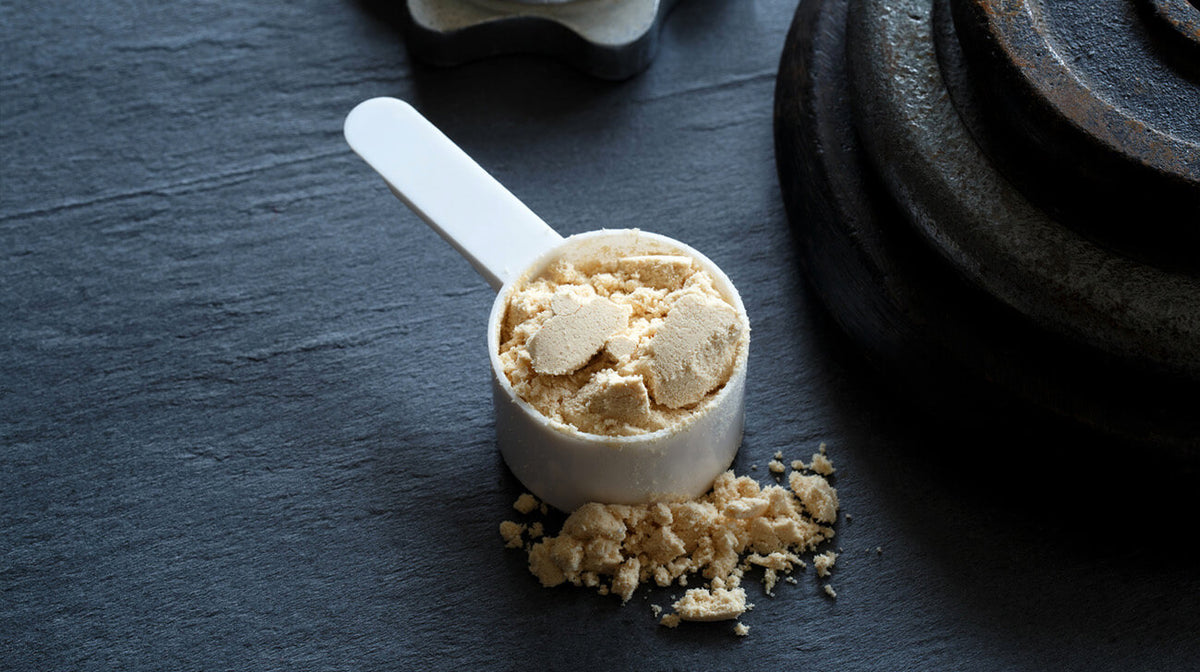Collagen Protein: Why Your Body & Your Skin Need More

Collagen and collagen proteins are buzzy topics we’ve been hearing about for a while. So what exactly is collagen protein and why is it beneficial to Spartans?
Collagen Protein Basics
Collagen protein helps our body withstand the consistent pounding of Spartan HIIT workouts with burpees, box jumps, and sprints by supporting the healing and recovery process of joints and bones.
Collagen is the most abundant protein within the bodies of mammals (like you). It’s responsible for what many of us would consider our youthful glow, tight skin, and shiny hair. Below the surface, it helps maintain flexibility of bone structure, tendons, ligaments, and muscle.
How does it do this? It has to do with protein, and protein has to do with amino acids.
The strength of collagen protein comes from its triple-helical structure which is comprised of three amino acids: glycine, proline, and hydroxyproline. Amino acids are the building blocks of protein. Some amino acids are nonessential (meaning our body can synthesize them on its own as long as our diet is adequate), while others are essential (we must get them from food).
Badass fact: Gram for gram, type I collagen protein is stronger than steel.
What Does Collagen Protein Have to do with Skin?
While the hard work of collagen protein is the role that it plays on the inside of our body, it also plays an important role on the outside. You’ve likely heard collagen touted as an ingredient in skin care products designed to keep skin looking firm and young. Although there are many products on the market promising these results, there are multiple factors that can work against their success. These include:
- Exposure to the sun
- Smoking
- Stress on the body that results in free radical damage (yes, that even means exercise)
- Poor hydration
Limiting exposure to these factors is key to maintaining the collagen protein you have. Topical retinoids are still the gold standard to make your skin look better, even as you lose collagen protein. Tretinoin cream, which is available by prescription only, is the most potent and best-studied retinoid.
Depletion of Collagen Protein During Aging
The hard truth about collagen is that the older we get, the less collagen our bodies produce. Dermatologist Dr. Suzan Obagi wrote about the effects of collagen loss for Scientific American. “After the age of 20, a person produces about 1 percent less collagen in the skin each year,” she says. “As a result, the skin becomes thinner and more fragile with age.” The good news is that in the same way that strength training can counteract the loss of lean muscle mass, eating right can help counteract the decreased availability of collagen protein.
How To Get More Collagen Protein Into Your Diet
- Eat real foods. The body can make its own collagen through the use of amino acids. You can help support the body’s use of these amino acids through a diet rich in protein. Animal proteins will provide the most abundant source of these amino acids, but plant sources such as beans and lentils can be good too. Bone broth, which is made from animal bones and carcass, is a great source of collagen since this element is drawn out of the animal during the processing.
- Eat plants. The phytonutrients found in plants, especially antioxidants, give the body a fighting chance against the free radicals brought about by exposure to the environment, general stress, and stress brought on by physical activity. Including foods like berries and spinach are a great way to incorporate antioxidants.
- Use quality collagen products. Collagen products can be a great supplement to incorporate into your diet. The key is remembering that supplements are meant to do just that, supplement. They should complement your well-balanced eating regimen and provide support as needed, but not be your primary source. You will want to look for hydrolyzed collagen protein supplements, since the body is better equipped to breakdown and absorb them. Optimally, if using a supplement, make it as a smoothie for best absorption, adding foods that contain the above mentioned nutrients to boost results.
Until researchers figure out a way to stop the collagen protein depletion that comes with age, focus on what you can do to maintain your collagen health.




